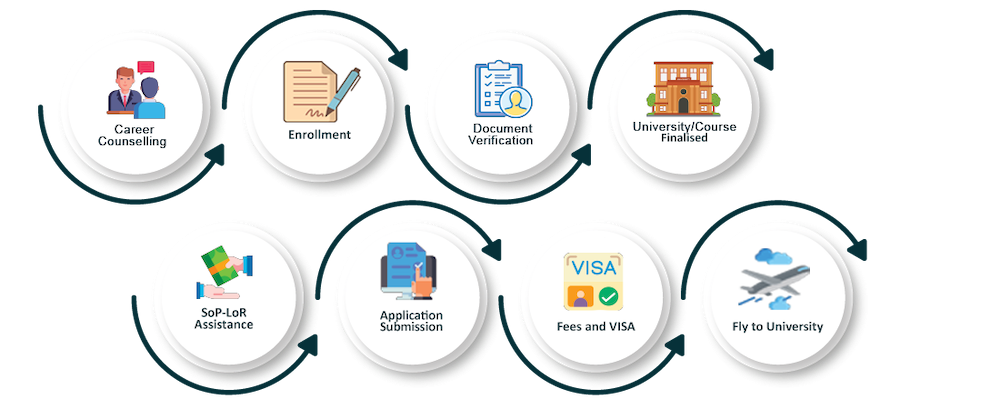It is also known as Hopkins or JHU, is a privately funded research institution situated in Baltimore, Maryland. It was formed in 1876 and named after its donor, 19th-century philanthropist Johns Hopkins. In terms of location, the main campus, Homewood, provides a classic university environment in the middle of the city, while other components of the university are located around the Baltimore area. In addition, the university has international campuses in Italy and China.
The calibre of research carried out at Johns Hopkins University is well-known and respected all across the world. In particular, the School of Medicine is well-known for the medical research that it conducts as well as the education that it provides. The Bloomberg School of Public Health is widely recognized for its high level of prestige. Overall, the university consists of a variety of departments and schools, some of which include the School of Arts and Sciences, the School of Engineering, the School of Education, and the School of Nursing, amongst other establishments.
It is also linked with Johns Hopkins Hospital, which is widely recognized as one of the greatest hospitals in the country. The partnership between hospitals and universities has led to significant leaps forward in terms of both medical research and patient care. It is well-known for its demanding academic programmes, excellent faculty, and state-of-the-art research facilities. It provides students with possibilities for interdisciplinary studies and research collaborations through a diverse range of undergraduate and graduate programmes.
Several research centres and institutions call its home, including the Applied Physics Laboratory (APL), the Space Telescope Science Institute (STScI), and the Institute for Basic Biomedical Sciences.
Throughout the course of the past ten years, it has consistently held a decent position in the rankings, albeit experiencing some temporary shifts. It is high placement in the World University Rankings attests to the institution's established academic standing.

THE
15

QS
24
| Course | Duration | Fee/Year |
|---|---|---|
| Bachelor of Science in Civil Engineering - Structural Engineering | 36 - 48 Months | USD - 22,858 |
| Bachelor of Arts in History - European History | 36 - 48 Months | USD - 22,858 |
| Bachelor of Science in Chemistry - Analytical Chemistry | 36 - 48 Months | USD - 22,858 |
| Bachelor of Arts in Archaeology - Mediterranean Archaeology | 36 - 48 Months | USD - 22,858 |
| Bachelor of Arts in Classics - Greek | 36 - 48 Months | USD - 22,858 |
| Bachelor of Arts in English - Creative Writing | 36 - 48 Months | USD - 22,858 |
| Bachelor of Arts in German - Language and Literature | 36 - 48 Months | USD - 22,858 |
| Bachelor of Arts in Hebrew - Language and Literature | 36 - 48 Months | USD - 22,858 |
| Bachelor of Science in Electrical Engineering - Circuits and Electronics | 36 - 48 Months | USD - 22,858 |
| Bachelor of Science in History of Science and Technology - History of Medicine | 36 - 48 Months | USD - 22,858 |
| Course | Duration | Fee/Year |
|---|---|---|
| Master of Arts in Communication / MBA (Blended) - Organizational Communication | 17 Months | USD - 32,334 |
| Master of Arts in Communication / MBA (On Campus) - Organizational Communication | 17 Months | USD - 32,334 |
| Master of Arts in Communication / MBA (Online) - Organizational Communication | 17 Months | USD - 32,334 |
| Master of Arts in Government / MBA (Blended) - Public Policy | 17 Months | USD - 32,334 |
| Master of Arts in Government / MBA (On Campus) - Public Policy | 17 Months | USD - 32,334 |
| Master of Arts in Government / MBA (Online) - Public Policy | 17 Months | USD - 32,334 |
| Master of Arts in International Relations / MBA - Global Security | 17 Months | USD - 32,334 |
| Bachelor of Science in Bioengineering - Biomedical Devices | 17 Months | USD - 32,334 |
| Bachelor of Science in Biomedical Engineering - Biomedical Devices | 17 Months | USD - 32,334 |
| Bachelor of Science in Computer Science - Software Engineering | 17 Months | USD - 32,334 |
The admissions committee is continuously seeking indicators of the types of students who will graduate from the school in the future. It is critical to carefully review one's admissions application before submitting it.


This study's objective is to ascertain the monetary benefits, if any, accrued to students as a direct result of their participation in educational activities. Furthermore, there are other benefits, such as increased earning potential and a broader range of relevant work prospects.
A few of the factors taken into account in this evaluation include tuition costs, the institution's proximity to an area of interest, the extent and breadth of the university's alumni network in related fields, the presence of career guidance services, and the fame and quality of the educational programmes offered.
Graduates earn an annual salary of 61,700 USD on average after graduation. Companies such as Amazon, Deloitte, the New York Times, Ernst & Young, McKinsey & Company, and Inca Digital are among the most prestigious employers of Johns Hopkins University graduates.
Graduate and Alumni Salaries at Johns Hopkins University - By Degree, Job, and Degree
| Course | Annual Package |
|---|---|
| Software Engineer | 103,000 USD |
| Data Scientist | 97,800 USD |
| Mechanical Engineer | 85,300 USD |
| Project Manager | 86,200 USD |
| Finance Control & Strategy | 170,000 USD |
| Accounting & Professional Services | 145,000 USD |
| Healthcare | 140,000 USD |
| Financial Services | 139,000 USD |
| Architecture, Real Estate & Design | 125,000 USD |
| IT and Software Development | 117,000 USD |
It operates on a semester structure. Semester systems often span a duration of approximately 14 to 16 weeks. The school year is broken up into three distinct parts: the fall semester, the spring semester, and the summer term.
A significant number of students at Johns Hopkins University opt to pursue a dual major, pairing an English degree with another discipline. The intersection of two disciplines within the Humanities can enhance and mutually reinforce each other. Some of the many possible combinations for a double major are the study of French and English, the history of art and English, or writing seminars and English.
In order to get admission to Johns Hopkins University, it is expected that applicants possess a high level of academic achievement, as evidenced by a Grade Point Average (GPA) of 3.92 on a 4.0 scale. This requirement necessitates that individuals rank at or near the pinnacle of their respective academic cohorts. It's crucial to have a high level of academic performance, demonstrated by consistently receiving grades in the A range across all courses, in order to compete effectively with other applicants.
According to the Association of American Medical Colleges (AAMC), it is recognized as a leading private undergraduate institution known for its students' propensity to apply to medical schools in the United States. Due to the necessity for pre-medical students to vie for admission into medical schools, a significant proportion of students are compelled to engage in competitive endeavors.
It is best known for medical research discoveries such as genetic engineering, the foundation of the first American School of Public Health, and the transformation of Johns Hopkins Hospital into a world-class medical center.
At Johns Hopkins University, there is approximately one student for every seven members of the teaching faculty.